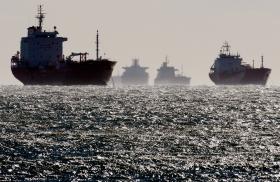On 18 November liberal-leaning radio program Echo Moskvy (Moscow’s Echo) hosted Russian political analyst Stanislav Belkovsky on an approximately hour-long talk show, Personally Yours, with host Alexei Naryshkin to discuss Russia’s intervention in Syria. The accompanying excerpts are from the show transcript, posted on the radio’s web-site.
Belkovsky made several points. He said that Russia is in Syria primarily because of Russian President Putin’s personal ambitions to get Western countries to “return to the Yalta-Potsdam world,” that is, to restore Russia’s status as a great power and help Russia “divide the world.” He does not say where, but from his subsequent comments, he is primarily referring to Ukraine.
When asked whether the West will ever “forgive” Russia for its actions in Ukraine, Belkovsky’s answer is a categorical no, because institutions, not individual personalities, govern in the West. His response highlights one aspect that Russia’s liberal elites particularly admire about the West—emphasis on institutions and rule of law, concepts that are absent in Putin’s Russia, where individual personality politics and, therefore, corruption is the norm rather than exception.
Belkovsky’s other point in the accompanying excerpt is that he believes, according to sources he does not cite, that Russia will soon send as many as 25,000-30,000 troops to Syria, all in the name of Putin’s personal ambition rather than a desire to truly end bloodshed in Syria. These events, he believes, will lead to the “Afghanization” of Syria, that is, Russia will get so bogged down it will contribute to the fall of Putin’s system, just as the Soviet Union’s Afghanistan invasion brought down the already weakening Soviet Union.
Belkovsky believes that a series of 1999 apartment bombings propelled Putin into power: at the time, Putin quickly blamed the Chechens and declared a second war on Chechnya, and his popularity soared, in part, because of his strong antiterrorism stance. Some analysts claimed that Russia’s security forces themselves were responsible for the bombings, although Putin had halted inquiry into these events, and it is ultimately unclear what truly happened. For Belkovsky, the intervention in Syria carries a similar character—creating a situation that allows Putin’s popularity to grow. On this point too, Belkovsky’s point highlights how liberal elites in Moscow view Putin’s rise and his current actions in Syria. Indeed, immediately after Russia’s intervention in Syria Russia’s liberal elites raised the question of “Afghanization,” and whether an event similar in some respects to the 1999 bombings will take place.
Anna Borshchevskaya is the Ira Weiner Fellow at The Washington Institute. This item was originally published in the December 2015 edition of OE Watch.
OE Watch



